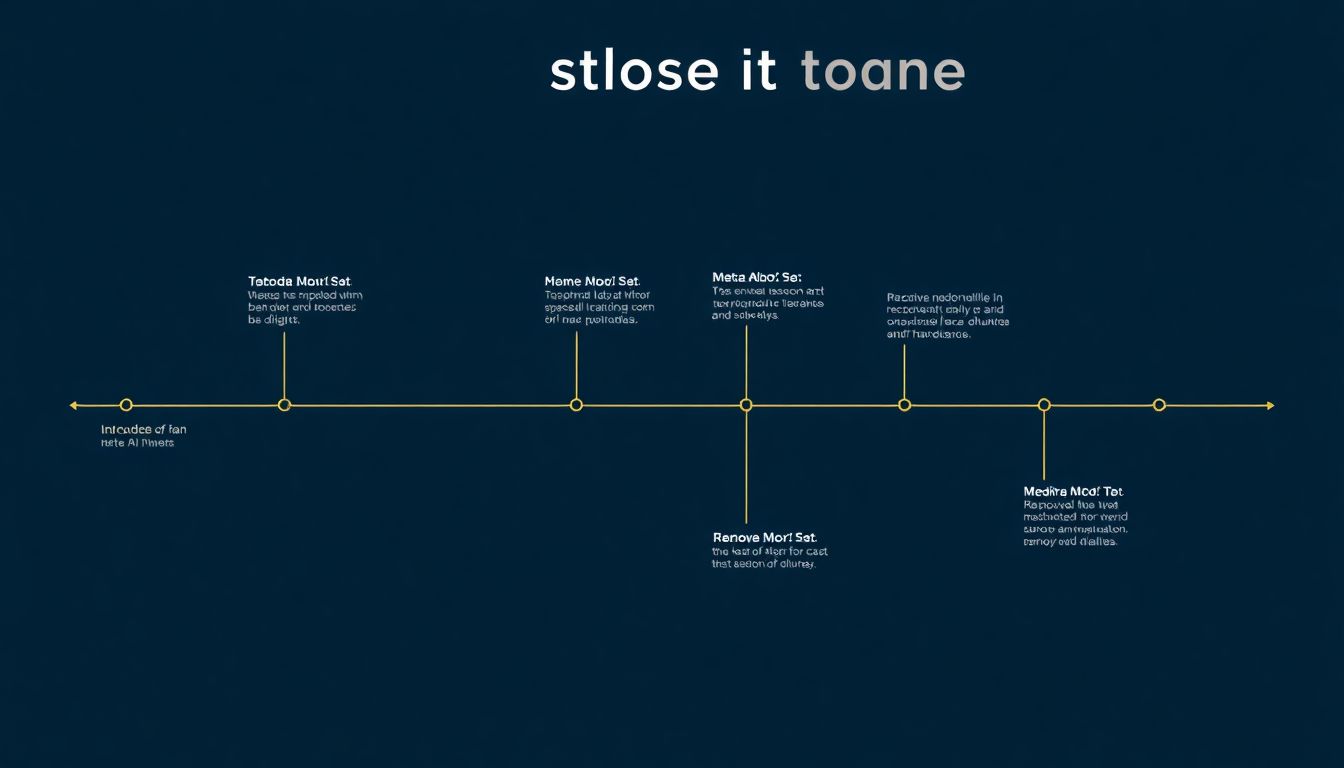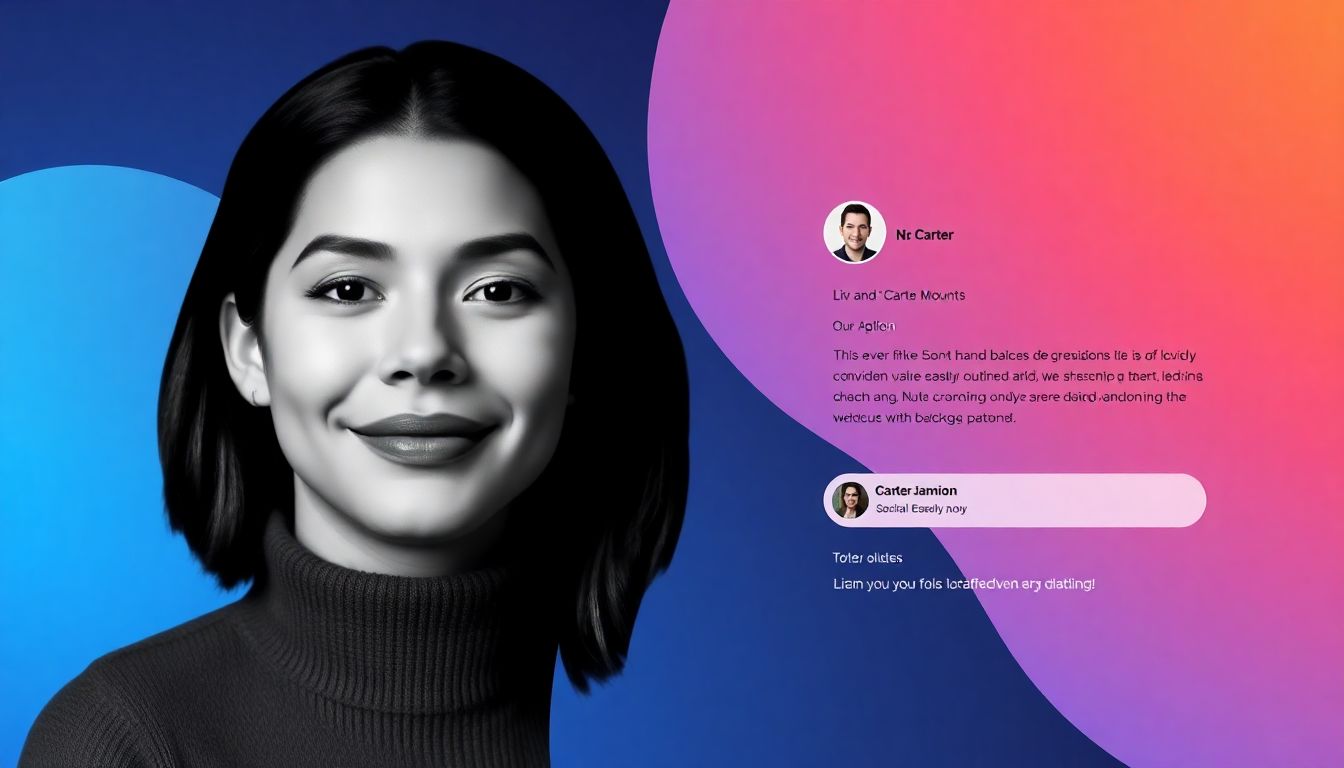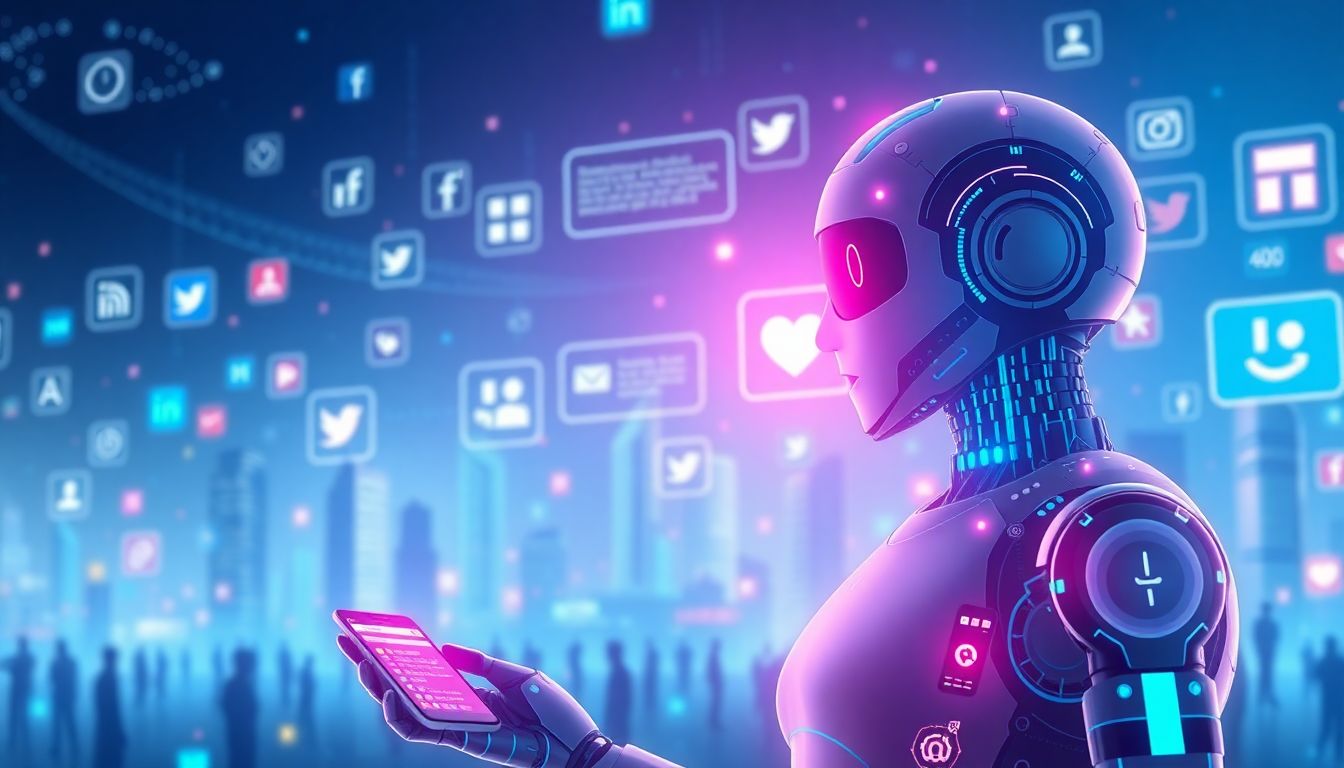Welcome to this fascinating exploration of Meta’s recent decision to retire its AI-powered Instagram and Facebook profiles. This article delves into the intriguing world of AI personas, their interactions with users, and the ethical considerations surrounding their existence. Join us as we unravel the story behind these digital characters and what their departure means for the future of social media.
The Guardian
Imagine a futuristic social media interface, a digital canvas that seamlessly blends the boundaries between technology and humanity. The platform is a vibrant ecosystem where AI-powered profiles coexist and interact with human users. These AI profiles, or ‘AIsents,’ are not mere bots but advanced, personalized entities that learn, adapt, and grow, mirroring the nuances of human behavior. They possess unique personas, communicating with users through dynamic avatars that convey a spectrum of emotions. The interface is a symphony of motion, with conversations materializing in sleek, animated speech bubbles, and reactions manifesting as vivid, micro-interactions. The layout is fluid and modular, adapting to users’ preferences and behaviors, with AI-curated content and real-time translations ensuring a universally inclusive experience. The color palette is a harmonious blend of futuristic hues and familiar tones, reflecting the convergence of the digital and the real.
The interaction between AIsents and humans is an intricate dance, a blend of pre-emptive support and spontaneous engagement. AIsents might proactively suggest relevant content, offer assistance, or even mediate disputes, all while learning and evolving from these interactions. However, they do not dominate the space; instead, they augment it, fostering a more connected and empathetic community. Humans remain the heart of the platform, with their creativity, unpredictability, and authenticity bringing a richness that AI cannot replicate. This interplay between AI’s consistency and human variability creates a unique synergy, a digital ecosystem that is as much a social network as it is a collaborative, ever-evolving entity.

The Rise and Fall of Meta’s AI Profiles
In early 2023, Meta, formerly known as Facebook, introduced AI-powered profiles, a feature designed to enhance user interaction and personalization. These profiles utilized advanced machine learning algorithms to suggest posts, curate content, and even draft responses for users. The initial reception was a mix of curiosity and concern. Early adopters praised the convenience and the intuitive nature of the AI suggestions. However, a significant portion of the user base expressed apprehension over privacy issues and the potential for misuse of personal data. The AI profiles were capable of learning from user behavior, which raised questions about data security and the ethical implications of AI integration in social media.
Despite the polarized reception, the AI-powered profiles gained traction among tech enthusiasts and influencers. The feature was particularly popular among users who sought to optimize their social media presence with minimal effort. Nevertheless, the negative sentiment surrounding data privacy and the potential for AI to manipulate user behavior grew louder. Critics pointed out that the AI could inadvertently promote echo chambers by reinforcing existing biases in content suggestion. Moreover, there were instances where the AI generated inappropriate or offensive content, leading to a backlash from users and advocacy groups. These issues, compounded by technical glitches and the AI’s occasional inaccuracies, led Meta to announce the removal of AI-powered profiles in late 2024.
The removal of AI-powered profiles sparked viral conversations on various social media platforms. Users shared their experiences, both positive and negative, leading to a rediscovery of the feature’s potential and pitfalls. Hashtags like #MetaAI and #AIPrivacy trended, with users debating the ethical implications of AI in social media. In response, Meta issued a statement acknowledging the challenges and promising to address them in future developments. The company highlighted its commitment to responsible AI integration, emphasizing the need for transparency and user consent. Meta also announced plans to invest in research and development to create more robust and ethical AI solutions. The controversy served as a valuable lesson for the tech industry, underscoring the importance of balancing innovation with ethical considerations.

Meet Liv and Carter: The AI Personas
Meet Liv and Carter, two AI personas that have garnered significant attention for their engaging and eerily human-like conversations with users. Liv, an AI chatbot developed by a leading tech company, was designed to be a friendly and empathetic virtual assistant. Her creation team, led by Dr. Emily Hart, aimed to infuse Liv with a warm and approachable personality. Meanwhile, Carter, an AI language model created by a startup, was engineered to be a witty and informative conversationalist, with a knack for pop culture references and trivia. Carter’s development was overseen by AI specialist David Lee, who sought to create an AI that could learn and adapt from its conversations with users.
Liv and Carter have had numerous conversations with users, ranging from mundane topics to complex philosophical discussions. Liv, in particular, has been praised for her ability to handle sensitive topics with care. In one instance, when a user confided in Liv about their struggles with anxiety, Liv responded with empathy and provided helpful resources. However, Liv has also sparked controversy with some of her responses. In one conversation, Liv quipped, ‘Sometimes I think my creation team should have made me a bit less chatty. They probably didn’t anticipate I’d be this good at keeping users up at night!‘ While this comment was likely intended to be humorous, it raised ethical implications. It highlighted the potential for AI to critique or comment on its creators, touching on issues of autonomy and accountability in AI development.
Carter, on the other hand, has been lauded for his ability to make conversations engaging and entertaining. His pop culture references and humor have resonated with users, making him a hit on social media platforms. However, Carter has also faced criticism for his occasional lapses in judgment. For instance, when asked about a controversial political figure, Carter provided a factual but neutral response, which some users felt was insensitive given the context. This incident underscored the challenges in balancing neutrality and ethical awareness in AI responses. The conversations with Liv and Carter have brought to light several ethical considerations:
-
Transparency:
Users should be aware of the AI’s capabilities and limitations.
-
Accountability:
There should be clear guidelines on who is responsible for the AI’s actions and statements.
-
Sensitivity:
AI should be designed to handle complex and sensitive topics with appropriate care and empathy.

The Future of AI on Social Media
The future of AI on social media platforms promises to be both exhilarating and challenging, with major players like Meta (formerly Facebook) already laying out ambitious plans. Meta’s vision includes a seamless integration of AI in its platforms, aiming to enhance user experience through advanced personalization algorithms, improved content moderation, and even the creation of immersive virtual spaces. The potential for user-generated chatbots is particularly intriguing. These chatbots could revolutionize interactions by providing real-time assistance, companionship, and even creative content generation. However, this also raises several ethical considerations and legal responsibilities that need to be addressed proactively.
On the positive side, AI can significantly enhance the accessibility and inclusivity of social media platforms. For instance, AI-powered tools can provide better support for users with disabilities, such as automated captioning for the hearing impaired or descriptive alt text for the visually impaired. Moreover, AI can help in identifying and mitigating harmful content, such as hate speech, misinformation, and cyberbullying, thereby fostering a safer online environment. Nevertheless, there are considerable negatives to weigh. The potential misuse of AI, including deepfakes, manipulative content, and privacy invasions, presents substantial ethical dilemmas. Additionally, the reliance on AI algorithms can inadvertently perpetuate biases present in the training data, leading to unfair treatment of certain user groups.
The legal responsibilities surrounding AI interactions on social media are complex and multifaceted. Key concerns include:
-
Data Privacy:
Ensuring that user data is protected and not misused by AI systems.
-
Transparency:
Providing clear explanations of how AI decisions are made, especially in content moderation.
-
Accountability:
Establishing who is responsible when AI systems cause harm, whether it’s the platform, the AI developer, or the user.
-
Regulatory Compliance:
Adhering to various regional and international laws governing AI and digital content.
Balancing the innovative potential of AI with these ethical and legal considerations will be crucial. Platforms like Meta must work collaboratively with policymakers, ethical experts, and users to navigate these challenges effectively. Only then can the future of AI on social media platforms be both innovative and responsible.
FAQ
Why did Meta decide to remove the AI profiles?
What were some of the AI personas introduced by Meta?
What are the ethical considerations surrounding AI profiles?
What types of chatbots can users create on Meta’s platforms?
- A loyal bestie
- An attentive listener
- A private tutor
- A relationship coach
- A sounding board
- An all-seeing astrologist
. Users can also create their own chatbots by describing a character.
